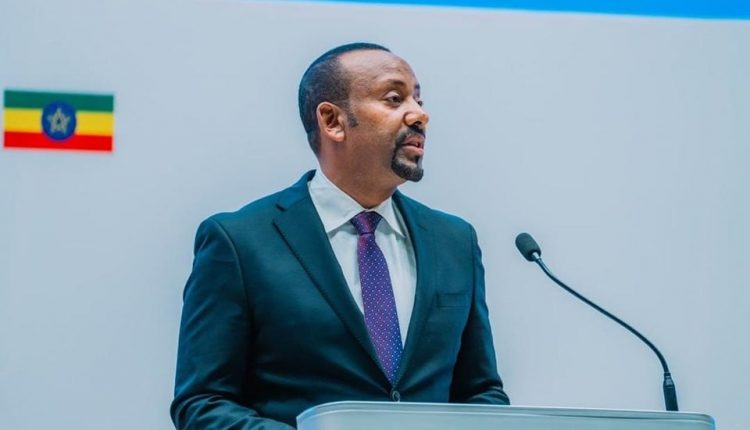PM Abiy stresses the need to transform food systems, embrace agro-industrialization to combat hunger
Addis Ababa, November 5, 2024 (FBC) – In his remarks at the World Without Hunger Conference which is taking place in Addis Ababa, Prime Minster Abiy Ahmed (PhD), stated that climate change, natural disasters, covid19 pandemic, and conflicts affected the global efforts to achieving Zero Hunger, adding, “these challenges has only underscored the urgent need to redouble efforts towards food security.”
The Premier underscored, “We must adopt sustainable practice, advance modern farming, expand access to essential agriculture inputs and address climate change to enhance productivity.”
Ending world hunger is about more than just increasing productivity. It requires us to tackle systemic issues, such as poverty, inequality, and climate resilience in a holistic manner,” he added.
Ethiopia has made significant progress towards achieving food security for all its citizens. However, ongoing challenges persist throughout the Ethiopian food system, spanning production, distribution, and consumption.
Production, diversity, and productivity are constrained by limited access to essential inputs, including fertilizers, seeds, and modern agricultural technologies.
Additionally, population growth and agricultural intensification has led to soil erosion, land degradation, and deforestation overtime, he said, adding, “Responding to these issues requires reducing agricultural greenhouse gas emission whilst simultaneously building resilience to ongoing climate change and extreme weather events.”
Over the past 6 years, Ethiopia’s focus on agricultural transformation and productive productivity has enabled the nation to double the size of cultivated land, the Premier remarked.
“Our emphasis on high value industrial crops is yielding promising outcomes,” Abiy pointed out.
“We have made significant gains in drought-resistant crops like wheat, teff, maize, and sorghum, and transformative initiatives, such as our Green Legacy Initiative, launched in 2019 aim to combat climate change and enhance agricultural productivity.”
To date, Ethiopia has planted 40 billion seedlings with a target of 50 billion by 2026. Expanding its forest coverage by more than 6% within 5 years has helped restore our ecosystem and improve soil fertility, creating better conditions for sustainable agriculture.
“Additionally, our strategic focus on wheat production marks a significant achievement through expanded irrigated farming and modernizing agricultural practices,” he noted.
Ethiopia produced 230 million quintal of wheat in the past year, of this irrigated wheat alone contributed 107 million quintals cultivated across 3 million hectares, according to the Premier.
“These of seasonal interventions have been pivotal to our success. Building a resilient food system also requires integrating agriculture with industry to maximize value.”
“Integrated agro-industrial parks have been playing a key role by providing processing facilities, storage and market access, transforming raw products into high value goods for local and global markets,” Abiy said, adding “Our investments in these parks have reduced post-harvest loss by 30% and boosted farmers’ incomes by 20 % and created thousands of jobs.”
Despite inflation, economic volatility, and global uncertainty, we have been making consistent efforts to reduce the national poverty. In doing so, Ethiopia has committed expanding agro industrialization and implementing inclusive policies that promote equitable progress for all segments of society.
“To combat hunger, we need to transform our food systems by moving beyond traditional agricultural practices and embracing agro industrialization. This involves investing in agricultural inputs, energy access, and processing technologies with privatizing food security,” he underlined.
Achieving success in this this endeavor requires a collaboration approach between governments, private sector, farmers, researchers, and international organization working together.
Finally, Prime Minister Abiy extended gratitude to UNIDO for their unwavering support Africa for championing this cause, expressing confidence that nations will arrive at landmark decisions that will help accelerate progress towards achieving the goals.
By Wondesen Aregahegn


